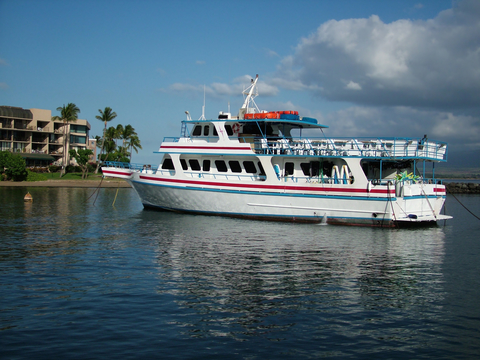
Factors That Can Affect the Cost of Commercial Boat Insurance
With over 90,000 miles of shoreline surrounding the U.S., and thousands of commercial boats operating off those shorelines and on inland waterways, commercial boat insurance is a virtual necessity to protect your investment in a commercial vessel. Commercial boat insurance is available to protect your watercraft and cover your liability if something goes wrong.
When discussing commercial vessels, you need to consider the categories and weight classes to determine the insurance protection that may be needed. The variety is enormous, and so are many of the vessels within each category. Here are just a few categories of commercial watercraft that insurance companies cover:
- Inshore fishing vessels
- Offshore fishing vessels
- Sightseeing charters
- Waterski/wakeboard schools
- Boat rental services
- Excursion vessels
- Dive charters
What Influences the Cost of Commercial Boat Insurance?
Insurance companies take many factors into consideration before determining the premium for commercial boat insurance. Here are a few things they look at when putting together insurance quotes:
- Value of the vessel. If new, the purchase price or market value will be used for the replacement value, but if used, the underwriter will typically order a survey by an experienced survey provider for information regarding the value and overall condition of the vessel.
- Length and age of the commercial boat
- Type of vessel. The construction material and style of the vessel will be considered. For example, is it a V-hull, catamaran, sailing yacht, or fishing vessel?
- Type and horsepower of engines
- Mooring location
- Intended area of navigation
- Claims history of the owner or navigator
- Intended use
What Type of Coverage Does a Commercial Boat Need?
Although many types of coverage are provided by a commercial boat insurance policy, there are two primary or basic coverages that should always be considered:
- Liability coverage: Often called protection and indemnity coverage, it provides coverage for legal obligations to third parties. Your legal liability typically arises from bodily injury, loss of life, or damage to another's vessel or other property as a result of operation of your vessel. The liability coverage is also available for defense costs if an action is brought against you or your business.
- Hull coverage: This part of a commercial boat policy pays for physical damage to your vessel and is best purchased on an all-risk basis, which means that if the cause of the loss is not excluded under the policy, it will be covered. The coverage will provide protection for the hull, attached equipment, and unattached equipment and belongings. It's important to note, however, that the owner is responsible for maintaining the vessel, which means normal wear and tear is typically excluded.
Along with the basic coverages, there are additional coverages that should be considered as well:
- Vessel disposal and pollution liability: Typically, when a vessel sinks offshore or in a waterway, the owner is responsible for removing or disposing of the wreckage, especially if there are any materials aboard that may be considered hazardous. You and your business may also be held responsible for clean-up expenses that result from oil pollution or contamination. This coverage provides liability to pay for these expenses up to the limits you select when purchasing the policy.
- Medical payments coverage: Owners should also consider an appropriate amount of medical payments coverage that will pay for medical expenses for third parties who are injured on your vessel, whether you are found liable or not. This coverage pays on a per person basis rather than per accident. You should also determine whether this coverage is available for persons boarding or leaving the vessel and for water-skiers if needed.
- Maritime coverage: This is a type of employer’s liability protection for the vessel owner for injury to the crew of any commercial boat. It responds to liabilities imposed by the “Jones Act,” the federal law that applies the common law of the seas to ship owners.
- Uninsured boater coverage: Liability coverage is not mandatory for some commercial vessels and most personal ones. This means that you and your passengers are at risk for injury expenses resulting from an accident with an uninsured boater. By selecting uninsured boater coverage on your commercial boat insurance, you can make a claim for your own injuries or those of your passengers against your own insurance policy.